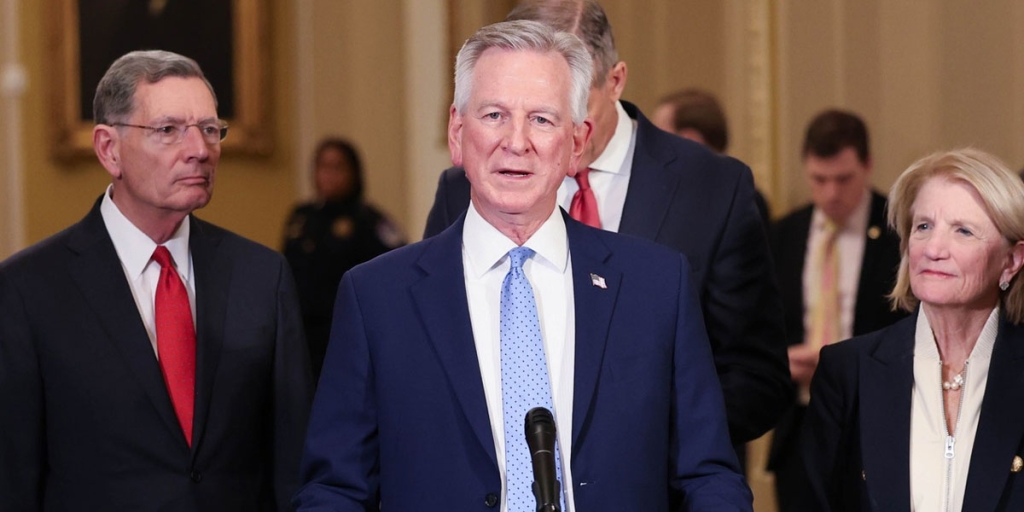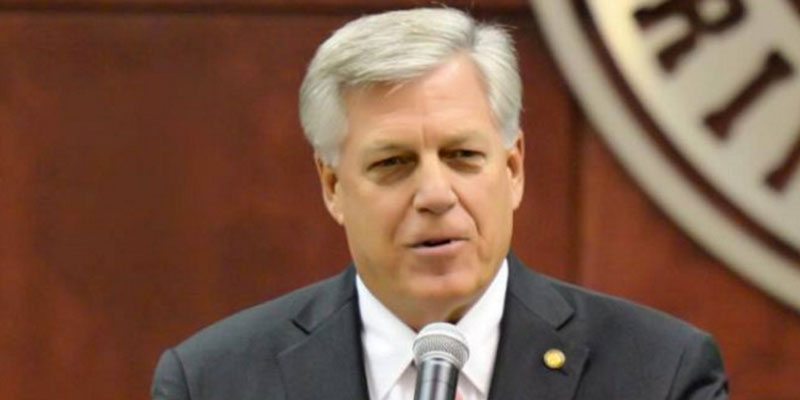It is no secret that Alabama contributes heavily to the U.S. national defense. From rocket manufacturing facilities and Redstone Arsenal in North Alabama to the shipbuilders and Coast Guard base on the Gulf Coast, Alabama is key to the military, intelligence community, law enforcement and space sectors.
What many may not know is how reliant these industries are on politics and policy at the federal and state levels. For decades, the Alabama congressional delegation, led by U.S. Senator Richard Shelby (R-AL), has consistently secured authorization and funding for major defense and space projects to be completed in the Yellowhammer State. These efforts require countless hours of appropriations and policy negotiations in Washington, enabled by Shelby’s seniority on the powerful Senate Appropriations Committee.
With Shelby set to retire in 2022 and several new faces in the congressional delegation, the Alabama defense industry and state leaders are concerned about the flow of federal dollars running dry in the coming years. However, it is not all doom and gloom. U.S. Representatives Mike Rogers (AL-03), Robert Aderholt (AL-04) and Mo Brooks (AL-05) continue to hold key positions which will help continue Alabama’s dominance in the defense industry. In addition to these veteran lawmakers, newly elected U.S. Senator Tommy Tuberville (R-AL) and U.S. Representative Jerry Carl (AL-01) secured key committee and subcommittee assignments which will further aid in these efforts.
This article is the first of three covering the major challenges and opportunities the Alabama congressional delegation and state leaders will face to maintain Alabama’s preeminence in national security. Covering all of Alabama’s defense interests would take a more in-depth and lengthy study, so this is by no means intended to serve as an encyclopedic record of all the incredible work being performed in the state.
The natural geographical starting point for this topic is North Alabama, home to some of the state’s — and the nation’s — most treasured defense manufacturers, headquarters and program offices. Redstone Arsenal in Huntsville houses NASA’s Marshall Space Flight Center, the Missile Defense Agency, the Army’s Space and Missile Defense Center, the Defense Intelligence Agency’s Missile and Space Intelligence Center and the FBI’s future “HQ 2” among many other government offices. The Rocket City also hosts countless defense contractors including Lockheed Martin, Boeing, Dynetics and Raytheon Technologies who perform most of the work to support the government presence in North Alabama.
While there are many pressing priorities in North Alabama for its leaders in Washington, there is one that requires the most effort, as its success could drive further growth — while its demise could be devastating.
This issue is protecting the Air Force’s decision to base U.S. Space Command in Huntsville. The Space Command decision, made in the final weeks of the Trump administration, is being contested by states who claim the decision was political in nature and represents a final effort by the former president to punish states he failed to secure in the 2020 election. Senators from California, Colorado, Nebraska and New Mexico have been vocal supporters of reopening the basing decisions, leading the Defense Department’s inspector general to open an inquiry into their accusations.
The good news is that the facts are on the side of Alabama, and Secretary of Defense Lloyd Austin — an Alabama native — and the Air Force have defended the original decision to base Space Command in Huntsville. The area’s relatively low cost of living, deep talent pool of highly qualified personnel, its growing federal footprint and the availability of the necessary facilities at Redstone Arsenal are what drove the Air Force’s decision, not politics.
That said, Huntsville is not out of the woods yet. The efforts to reopen the basing decision process will continue given the economic impacts at stake. The Alabama congressional delegation must continually combat the effort, which they are well equipped to do.
To start, Shelby still has about two years left in his term, during which he will continue his role as the top Republican on the Senate Appropriations Committee and its Defense Subcommittee which oversees all military and intelligence community funding.
Additionally, Shelby’s new colleague, Tuberville, secured a coveted spot on the Senate Armed Services Committee and its Strategic Forces Subcommittee that oversees military space programs. With these assignments, he will be at the table for all major policy and legislative negotiations on the military issues, including any legislation covering Space Command basing. Shelby and Tuberville will need to team up and coordinate their efforts on their respective committees to combat any legislative efforts to deprive Huntsville of Space Command.
Another major tool for Alabama is the key positions its representatives hold in the lower chamber. Rogers recently became the ranking Republican on the House Armed Services Committee, where he will be the decisive voice on military issues for House Republicans. Rogers is a long-time supporter of Space Command, having previously chaired the Armed Services subcommittee covering military space issues and helped lead the effort to create Space Command and the Space Force. Space Force is the newest military branch and is responsible for organizing, training and equipping space personnel for the joint force, including to Space Command which is charged with fighting and winning future wars that extend into space.
Also on the House Armed Services Committee are Brooks — who has now been endorsed by Trump to replace Shelby in the Senate — and newly elected U.S. Representative Jerry Carl (AL-01); they will also be able to lend a voice and vote to the effort to retain Space Command.
Lastly, but certainly not least, Aderholt is a senior member of the House Appropriations Committee and, like Shelby, is also a member of the Defense Subcommittee. Aderholt, who serves as the ranking Republican on the subcommittee governing NASA’s budget, will be able to multiply the efforts of Rogers, Brooks and Carl through advocacy and language in appropriations bills and negotiations for the next fiscal year.
In all, Alabama’s strong representation on the House and Senate committees governing military spending and policy will be key to safeguarding Space Command’s presence in North Alabama. With a combined effort, it will be difficult for states to scuttle the economic impact Space Command will supply not only to Huntsville, but the entire state and Tennessee Valley region.
Beyond Space Command, there are many other important issues to be minded in Washington. The Huntsville-based ICBM-defense program, continued investments in hypersonic weapons being built by Dynetics and Lockheed, and support for United Launch Alliance’s world-class space launch vehicle manufacturing facility in Decatur are among the many challenges lying ahead. Each of these, and many more, will require concerted and coordinated efforts by Alabama’s federal and state elected leaders to maintain North Alabama’s role as an epicenter of America’s national security industry.
Jake Proctor is a former intelligence officer at the Defense Intelligence Agency and previously held staff and defense policy positions for U.S. Senators Jeff Sessions (R-AL), Luther Strange (R-AL), and Joni Ernst (R-IA). He is a Birmingham native and graduate of the University of Alabama and the U.S. Air Command and Staff College.













